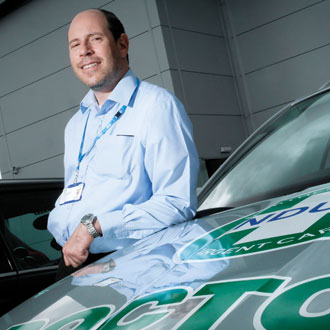Medical indemnity is already a huge issue for GPs, and it is likely to get even bigger.
Pulse recently reported that one out-of-hours GP was quoted premiums of up to £30,000 by a medical defence organisation (MDO).
And this is not an isolated case. This year’s LMCs Conference heard the cost of out-of-hours cover for some was £35 per hour, leading delegates to vote for indemnity fees to be covered by the state.
The concern is exacerbated by the refusal of the MDOs to provide figures on how much costs are rising, on the basis that they look at fees ‘case by case’.
And GP leaders are growing increasingly concerned about the rise in indemnity costs at a time when practices are being encouraged to employ non-medically qualified staff to make up for the scarcity of GPs. There have also been suggestions seven-day working will mean further increases.
Private sector poised
In this environment, private sector firms are looking to step in, claiming they can reduce fees by as much as 75% by offering packages to providers as a whole that are more in tune with actual risk.
This may not be the panacea it seems, though, with warnings GPs may not be covered adequately. But this has not stopped out-of-hours provider Vocare agreeing a deal with commercial insurer Beazley to indemnify all shifts worked by GPs it employs. It means GPs can inform their defence body they no longer need cover outside core hours, saving a combined total of ‘hundreds of thousands’ of pounds, say insurance brokers.
Vocare, a social enterprise providing out-of-hours GP services across north-east England, says it makes financial sense to foot the indemnity bill itself rather than paying GPs higher rates to account for out -of-hours cover.
And insurance broker Lockton says it has signed another such deal and is in talks over several others. An unnamed GP federation has signed a deal in the commercial market, which Lockton says has cut its overall indemnity costs by 75%.
Kevin Culliney, healthcare specialist at Lockton, says commercial insurers are keen to step in as they see GPs as low risk, with genuine claims being ‘few and far between’. So, he says, ‘we are at a loss’ to understand the rises in MDO fees.
This move by the profit-making firms is ‘creating some competition in the market’, Mr Culliney adds. ‘From the GPs’ point of view it has got to be good news.’

Dr Marc Herscovitz
Dr Marc Herscovitz, a GP in Gateshead, Tyne & Wear, and local clinical director at Vocare, says the ‘problem was getting GPs to commit to shifts’, because ‘indemnity was incredibly high so at times it wasn’t worth their while financially to work’.
However, this deal will help, he says: ‘It means any GPs working for us don’t have to self-indemnify. They no longer have to give a huge amount to the MDOs. We feel it takes down a big barrier for GPs to work in out-of-hours but time will tell.’
These comments were backed up by a survey of 430 GPs by Urgent Health UK last month, which found 79% of GPs limit the number of out-of-hours shifts they take on because of high premiums.
But GP leaders are advising caution. GPC urgent care lead Dr Charlotte Jones says that while the GPC is aware of new options, ‘it does seem new providers may have limitations on levels of cover, and the types of cases they will cover’.
Areas of concern include new staff groups, such as physician associates and pharmacists, and extended opening hours.
Dr Jones was able to negotiate out-of-hours GPs in Wales joining the NHS ‘risk pool’, which has significantly reduced fees. Other UK countries are pushing for similar schemes. But despite rumours that NHS England is considering a move, details are scant.
There are also problems with crown indemnity. Dr Jones says: ‘It took repeated communications to inform doctors that this deal doesn’t cover things like disciplinary hearings, criminal proceedings or GMC hearings.’ She warns this could be the case with private insurers. Even more worrying is a lesson from history. At the turn of the century, 100 GPs were left without run-off cover when St Paul, a US insurer in 25% of the UK medical indemnity market, pulled out of the sector with losses of hundreds of millions of pounds.
The MDOs emphasise they remain not-for-profit, and so will support GPs more than the commercial sector. Medical and Dental Defence Union of Scotland chief executive Chris Kenny says: ‘We’re in the market for members, not shareholders. We help members for any claim that arises, even if you are retired and ceased practising years before.’
The MDU warned GPs to be wary of indemnity that operates on a ‘claims made basis’, which may not offer protection once a GP stops working for the out-of-hours organisation.
But professional indemnity solicitor at Mills & Reeve Stephen King says GPs should consider such options: ‘Behind the insurers is an enormous regulatory regime to protect GPs. I think few GPs initially understand the difference between defence bodies’ discretionary indemnity arrangements and insurers’ contractually enforceable cover.’
Quick guide: Five tips on getting better indemnity

1. Ensure it covers all your roles. If you’re insuring practice staff, make sure each member’s roles are fully described.
2. Be clear on terminology for new roles in general practice, such as healthcare assistants and physician associates.
3. If changing provider, ensure you are covered in case of a claim during the transition period AND that your run-off cover is intact from when you were with your previous indemnifier.
4. Check what your cover includes and that there are no gaps that might leave you vulnerable as an individual or a practice.
5. Ensure the provider is looking out for your medical reputation and not just the best outcome in terms of cost. It is possible that it would be better to settle a claim rather than defend it, to protect your reputation. Any claims settled can affect future premiums.
Dr Charlotte Jones, GPC executive team
Pulse October survey
Take our July 2025 survey to potentially win £1.000 worth of tokens












